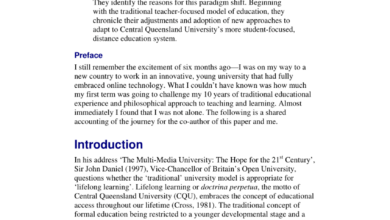Online Degree Program
Contents
Greetings to All Readers!
Hello, esteemed readers! Welcome to our in-depth exploration of the burgeoning world of online degree programs. In this article, we shall delve into the intricacies of this transformative mode of education, unveiling its strengths, weaknesses, and remarkable potential to revolutionize the landscape of higher learning.
As technology continues its relentless march forward, the traditional brick-and-mortar university model is being challenged by a new era of digital learning. Online degree programs, delivered through virtual classrooms and interactive platforms, offer a myriad of advantages that have captured the attention of students and educators alike.
Before we embark on our comprehensive analysis, let us pause and reflect on the profound impact that online education is having on our society. The ability to access world-class education from the comfort of one’s own home is empowering individuals to pursue their academic dreams regardless of their geographic location, financial constraints, or busy schedules.
As we delve into the intricacies of online degree programs, we shall uncover the factors that have contributed to their meteoric rise, including the increasing demand for flexible and accessible education, advancements in educational technology, and the growing recognition of the value of online learning.
Types of Online Degree Programs
The world of online degree programs is vast and diverse, catering to a wide range of academic interests and career aspirations. From undergraduate certificates to doctoral degrees, there is an online program available for almost every field of study.
Associate’s Degrees
Associate’s degrees are two-year programs that provide a solid foundation in a particular field of study. They are often the first step towards a bachelor’s degree or can serve as a standalone credential for entry-level positions in various industries.
Bachelor’s Degrees
Bachelor’s degrees are four-year programs that provide a well-rounded education in a specific discipline. They are the most common type of online degree program and prepare graduates for a wide range of careers.
Master’s Degrees
Master’s degrees are one- to two-year programs that build upon the knowledge and skills acquired during a bachelor’s degree program. They are designed to provide advanced training in a particular field of study and can lead to specialized careers or further academic pursuits.
Doctoral Degrees
Doctoral degrees are the highest level of academic achievement and typically take four to eight years to complete. They are research-intensive programs that prepare graduates for careers in academia, research, or specialized professional fields.
Strengths of Online Degree Programs
Online degree programs offer a multitude of advantages that have made them increasingly popular among students and educators alike. Here are some of the key strengths of this innovative mode of education:
Flexibility and Convenience
One of the most significant strengths of online degree programs is their unparalleled flexibility and convenience. Students can access course materials, participate in discussions, and complete assignments at their own pace and on their own schedule. This flexibility is particularly beneficial for working adults, parents, and individuals with busy schedules.
Global Reach
Online degree programs transcend geographical boundaries, enabling students from all corners of the globe to access world-class education. This global reach opens up new opportunities for students to connect with a diverse network of peers and instructors, expanding their horizons and enriching their learning experience.
Cost-Effectiveness
Compared to traditional brick-and-mortar universities, online degree programs often offer significant cost savings. Students can avoid expenses such as transportation, parking, and on-campus accommodation, making higher education more accessible to a broader population.
Career Advancement
Online degree programs are increasingly recognized by employers as a credible and valuable form of education. By earning an online degree, individuals can enhance their career prospects, qualify for promotions, and gain access to new opportunities.
Weaknesses of Online Degree Programs
While online degree programs offer a wealth of advantages, it is important to acknowledge their potential weaknesses as well. Here are some of the challenges that students may encounter when pursuing an online education:
Lack of Face-to-Face Interaction
One of the potential drawbacks of online degree programs is the lack of face-to-face interaction with instructors and classmates. This can be a challenge for students who thrive on the social and collaborative aspects of traditional learning environments.
Technical Difficulties
Online degree programs rely heavily on technology, and technical difficulties can sometimes disrupt the learning process. Students may encounter issues with internet connectivity, software compatibility, or technical support, which can be frustrating and hinder progress.
Self-Discipline and Motivation
Online degree programs require a high level of self-discipline and motivation. Students must be able to manage their time effectively, stay organized, and maintain their focus without the









